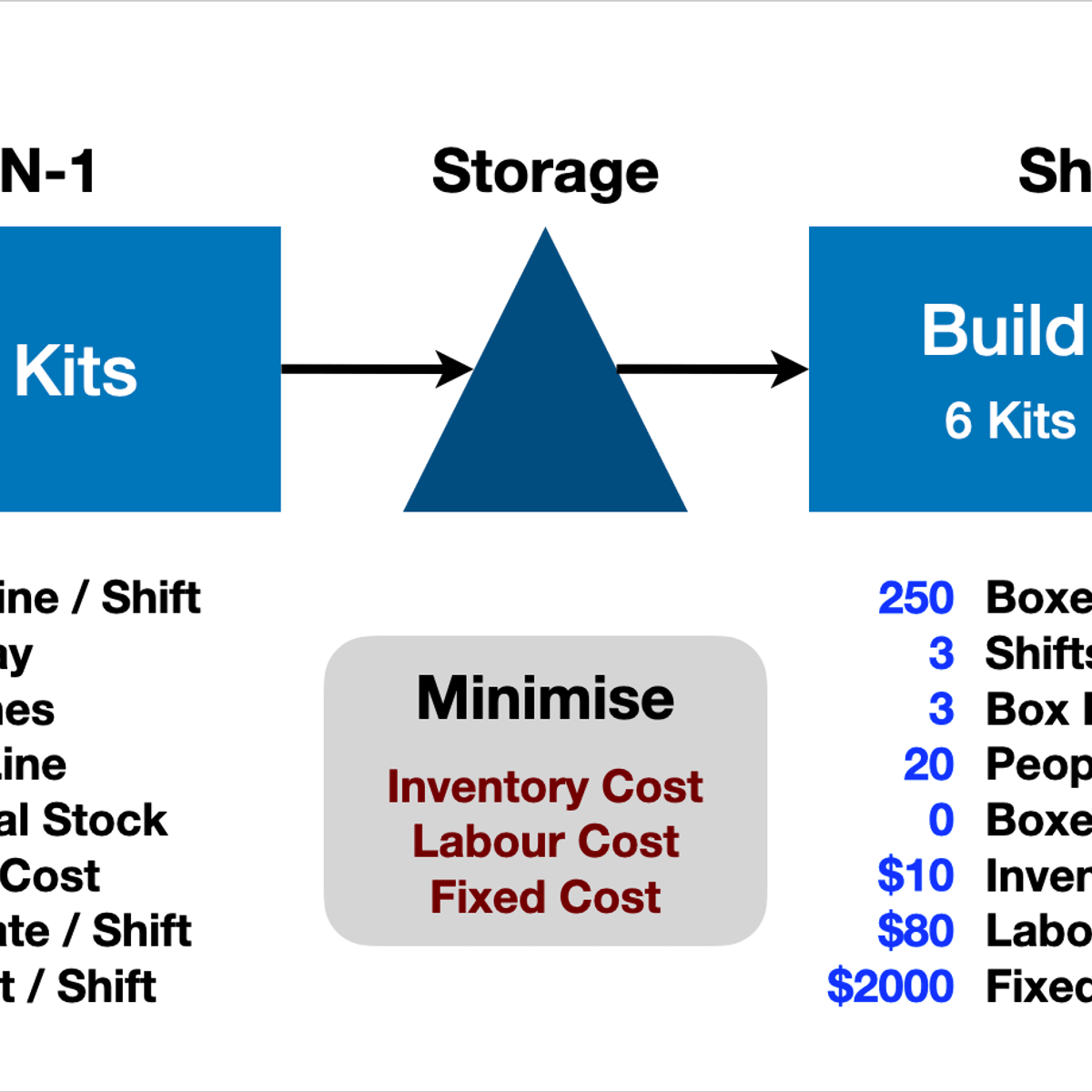
Two Stage Production System Optimization With R lpSolveAPI
What's inside
Syllabus
Good to know
Save this course
Activities
Review probability and statistics concepts
Show steps
Strengthen the foundation for understanding two-stage production systems, which involve uncertainty and decision-making under risk.
Show steps
-
Review notes or textbooks on probability and statistics.
-
Solve practice problems to reinforce your understanding.
-
Consult online resources or attend a workshop on probability and statistics (optional).
Participate in a peer study group
Show steps
Enhance understanding through peer collaboration and discussion.
Show steps
-
Find a study partner or group with similar interests.
-
Meet regularly to discuss course materials and assignments.
-
Work together to solve problems and clarify concepts.
-
Provide constructive feedback and support to each other.
Follow tutorials on R programming
Show steps
Gain proficiency in R programming, which is essential for solving the optimization models covered in this course.
Show steps
-
Identify R programming tutorials that align with this course's requirements.
-
Follow the tutorials step-by-step, completing all exercises and examples.
-
Seek clarification from online forums or consult the R documentation when needed.
-
Practice writing R code to solve simple optimization problems.
Show all three activities
Review probability and statistics concepts
Show steps
Strengthen the foundation for understanding two-stage production systems, which involve uncertainty and decision-making under risk.
Show steps
- Review notes or textbooks on probability and statistics.
- Solve practice problems to reinforce your understanding.
- Consult online resources or attend a workshop on probability and statistics (optional).
Participate in a peer study group
Show steps
Enhance understanding through peer collaboration and discussion.
Show steps
- Find a study partner or group with similar interests.
- Meet regularly to discuss course materials and assignments.
- Work together to solve problems and clarify concepts.
- Provide constructive feedback and support to each other.
Follow tutorials on R programming
Show steps
Gain proficiency in R programming, which is essential for solving the optimization models covered in this course.
Show steps
- Identify R programming tutorials that align with this course's requirements.
- Follow the tutorials step-by-step, completing all exercises and examples.
- Seek clarification from online forums or consult the R documentation when needed.
- Practice writing R code to solve simple optimization problems.
Career center
Operations Research Analyst
Industrial Engineer
Management Consultant
Financial Analyst
Data Scientist
Actuary
Operations Manager
Business Analyst
Quality Control Manager
Transportation Manager
Inventory Manager
Supply Chain Manager
Production Planner
Warehouse Manager
Logistics Manager
Reading list
Share
Similar courses
OpenCourser helps millions of learners each year. People visit us to learn workspace skills, ace their exams, and nurture their curiosity.
Our extensive catalog contains over 50,000 courses and twice as many books. Browse by search, by topic, or even by career interests. We'll match you to the right resources quickly.
Find this site helpful? Tell a friend about us.
We're supported by our community of learners. When you purchase or subscribe to courses and programs or purchase books, we may earn a commission from our partners.
Your purchases help us maintain our catalog and keep our servers humming without ads.
Thank you for supporting OpenCourser.



